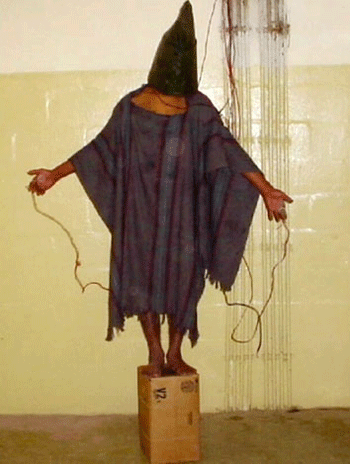Contemporary research has discovered that when interrogating highly important suspects with potentially vital information, it is much more effective to build a rapport rather than opting for the cliché torture methods often seen in American films. It appears that in America – where tortuous methods such as sleep deprivation and waterboarding are widely used as a CIA interrogation practice – citizens are almost ideologically split in half, with some supporting torture, and some opposing it.
This traditional method has been questioned by many for its obvious unethicality. The CIA have been criticised for making detainees stand on broken feet, force feeding them, and even humiliating them by stripping them nude. Not only are these methods highly unethical in practice, but they can also have a lasting psychological impact on detainees long after they have been interrogated, as many detainees can develop Post Traumatic Stress Disorder from enduring such torture.
Arguably, a blind eye may well be turned towards the unspeakable conduct found within places like Abu Ghraib and Guantanamo Bay, as some citizens may believe that using torture is a necessary evil in order to obtain essential information about terrorist plots. However, building a relationship with the detainee by showing respect and empathy increases the likelihood of receiving facts and details.
A recent Senate Intelligence Committee report argues that the barbaric CIA interrogation techniques only result in “fabricated” information, and are “deeply flawed”. The Senate Intelligence Committee Chairwoman, Dianne Feinstein, continued to say that any information gathered from such techniques could have been obtained from other means, rendering torturous interrogation both useless and completely unnecessary.
So, is building a rapport with detainees the way forward?
A recent study by Jane Goodman-Delahunty suggests so. Her research illustrates that inhumane treatment is no longer needed, or possibly never needed in the first place, in order to gain information or a confession from terror suspects. This involved interviewing different interrogators from countries such as Australia and Norway on their experiences with 30 terror suspects, focusing on the outcomes of interrogations and the methods which they used. The results show that “disclosure is 14 times more likely to occur” when using a rapport-building interrogation technique rather than using force and control and confessions were 4 times more likely when the interrogator was respectful and neutral towards the suspect.
Perhaps this research can be used for good, and instead of the CIA treating suspects with abrasive cruelty, information can be extracted from detainees in a much more humane manner in the future.
Catherine Joyce

